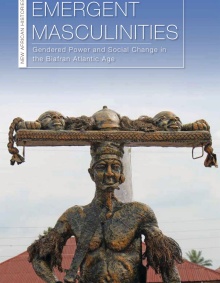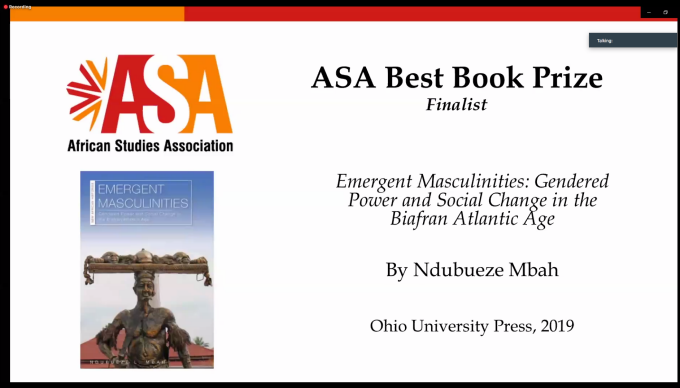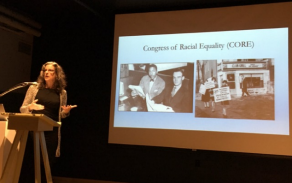Faculty Updates
Andreas Daum recently published an essay on Alexander von Humboldt and the late eighteenth-century take on pandemics and infectious diseases in the German daily Süddeutsche Zeitung (see the English summary and interview in the UB News Center). During the second half of his research year in Munich, Germany, he presented aspects of his current research on Humboldt at the Berlin-Brandenburg Academy of Sciences and Humanities, Cambridge University, the Universities of Hamburg and Munich, the annual meeting of the Alexander von Humboldt Foundation, and the Societat Catalana de la Història de la Ciència i de la Tècnica, Barcelona, Spain.
Emeritus Professor Roger Des Forges published a new book, The Mythistorical Chinese Scholar-Rebel-Advisor Li Yan: A Global Perspective, 1606-2018 (Brill). Des Forges examines the puzzle of Li Yan, a Chinese scholar who advised the rebel Li Zicheng (1605-1645), and helped him to overthrow the Ming, only to die at his hands. For more than three centuries, Li Yan’s identity and even existence were seriously questioned. Then, in 2004, there was discovered a genealogical manuscript which includes a Li Yan (1606-1644). He now appears to be the principal historical reality behind the Li Yan story, which became a powerful metaphor for the rise and fall of Li Zicheng’s rebellion.
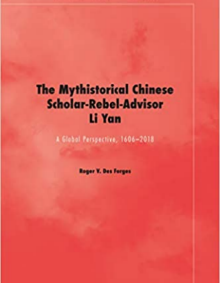
Sarah Handley-Cousins traveled to the University of Georgia to give a talk on Civil War disability and digital public history and spoke about Dig: A History Podcast as part of Niagara University's Women's History Month programming. During the lockdown, she "zoomed" into several classrooms and did virtual interviews with the National Museum of Civil War History, the Kenosha Civil War Museum, H-Civil War, and Reconstruction Era National Park. She also had an essay, "Wounded Warriors," published in the summer issue of the Civil War Monitor. Last, but not least, she learned how to bake a decent loaf of sourdough.
David Herzberg published his second book, White Market Drugs: Big Pharma and the Hidden History of Addiction in America (University of Chicago Press, 2020) and a handful of scholarly and popular articles on the history of drugs and drug policy. He has also been busy as co-editor-in-chief of Social History of Alcohol and Drugs (the peer-reviewed journal of the Alcohol and Drug History Society) and as Coordinator of Addiction Studies at UB.

Hal Langfur published a number of texts, including “Race and Violence in Portuguese America,” in The Cambridge World History of Violence, ed. Philip Dwyer and Joy Damousi (Cambridge University Press, 2020), “Native Peoples of Brazil,” Oxford Bibliographies in Atlantic History, ed. Trevor Burnard (Oxford University Press, 2020; online); “Protest and Resistance against Colonial Rule in Iberian America,” with Charles Walker, in The Iberian World, 1450 –1820, ed. Fernando Bouza, Pedro Cardim, and Antonio Feros (Routledge, 2019); “Native Informants and the Limits of Portuguese Dominion in Late-Colonial Brazil,” in The Oxford Handbook of Borderlands of the Iberian World, ed. Cynthia Radding and Danna Levin Rojo (Oxford University Press, 2019).
Yan Liu received the Dr. Nuala McGann Drescher Diversity and Inclusion Leave Program Award in Spring 2020, which allowed him to complete the revision of his book manuscript Potent Matters: Healing with Poisons in Classical Chinese Pharmacy. The book, under contract with the University of Washington Press, is scheduled to be released in June 2021. In addition, Liu's multimedia essay "Fluid Being: Mercury in Chinese Medicine and Alchemy," co-authored with Shigehisa Kuriyama, was published in Fluid Matter(s): Flow and Transformation in the History of the Body, edited by Natalie Köhle and Shigehisa Kuriyama, Australian National University Press, 2020. Liu also gave a talk on Chinese alchemy and the body at Binghamton University in October 2019.
Ndubueze Mbah received a prestigious 2019-2020 American Council of Learned Societies Centennial Fellowship in the Dynamics of Place, to facilitate his new book project, entitled “Rebellious Migrants: Forging Abolition, Cosmopolitan Identities, and Postcolonial Spaces in West Africa, 1840-1960.” The project examines the histories of West African male and female ex-slaves, indentured laborers, and migrant laborers, who used dissident mobilities of goods and bodies to forge contradictory practices of abolitionism, and create new regimes of dependency, gender, and commodity production, as well as new diaspora borderland communities in the West African polities of Old Calabar, Fernando Po, and Gabon during the New Imperialism. Mbah has carried out archival research in Sierra Leone and Old Calabar in spring 2020, and plans to continue his research in the United Kingdom, Fernando Po, and Gabon, as soon as COVID-19 inhibitions allow. In the meantime, he has presented his preliminary findings at virtual international workshops and conferences in the United Kingdom and USA.
Meanwhile, Mbah’s new book, Emergent Masculinities: Gendered Power and Social Change in the Biafran Atlantic Age, published by the Ohio University Press in October 2019, has received significant scholarly recognition. Emergent Masculinities was awarded the Association for the Study of the Worldwide African Diaspora (ASWAD)’s 2020 “Rosalyn Terborg-Penn Book Prize for Outstanding Original Scholarship on Gender and Sexuality in the African Diaspora.” The book was additionally, selected as a Finalist for “ASWAD’s 2020 First Book Prize,” which “honors an excellent single-authored book focused on Africa and/or the African Diaspora by an author who has not previously published a single-authored monograph.” Lastly, Emergent Masculinities was selected as a Finalist for the African Studies Association of the United States’ “Best Book Prize,” which recognized it as “a pathbreaking book,” that “makes a transformative contribution to our understanding of political, economic, and social processes in the Bight of Biafra region,” “transforms our understanding of the role of gender in precolonial Africa,” “deepens our understanding of the impact of the slave trade and European colonialism,” and “has broad ramifications beyond the Bight of Biafra to the vast areas affected by the Atlantic systems in Africa and the Diaspora.” The Lagos Studies Association will be hosting a roundtable of leading African and Atlantic historians on Emergent Masculinities in Spring 2021.
Patrick McDevitt continues to serve as the Fulbright advisor for the university and is busy working on his book manuscript, The Great Irish Famine: A Global History, due out in 2022 with Oxford University Press. He spent the spring converting his classes from face-to-face to online while also homeschooling twin preschoolers. He is very much looking forward to an eventual return to something resembling normalcy, including seeing students and colleagues in the flesh someday.
Claire S. Schen, like many other scholars around the country, experienced disruption to planned conference presentation and participation. She was to have given a paper at the Pacific Coast Conference on British Studies and to have commented on a panel for the Renaissance Society of America. While those events were not held because of the shut-down, she participated in a virtual Digital Humanities Day with the Renaissance Society. She is part of a group of scholars contributing to the digital project MoEML, or the Map of Early Modern London. When large public events were still being held, Schen presented local history research she has completed on women cyclists in 1890s Buffalo and the Women’s Wheel and Athletic Club members. The local history project began in the context of a UB Seminar she has taught in prior years, “The Bicycle.”
Erik Seeman published Speaking with the Dead in Early America in November 2019. Several months later it received the 2020 Lawrence W. Levine Award from the Organization of American Historians for the best book in American cultural history. Seeman is working on a book called "The Pox of 1721: Boston's Deadliest Epidemic," which he started before Covid and which has since become horribly relevant.
Kristin Stapleton worked with Professor Joseph Ho of Albion College to write an essay on using memoirs to teach about Chinese history, published in the fall 2020 issue of Education About Asia. A Chinese language edition of her book Civilizing Chengdu was published in spring 2020, and she participated in a book club discussion of it in Chinese via WeChat. In fall 2020 she helped organize a scholarly mentorship program sponsored by the Global Urban History Project. In addition to pursuing a research project on the history of housing in China during WWII and the 1950s, she is translating a Chinese WWII novel into English and has begun work on a book on the influence of urban reform movements across the world. Since spring 2020, along with many other colleagues at UB and beyond, she has undertaken a crash course in teaching online, but hopes to be able to return to in-person classes before long.
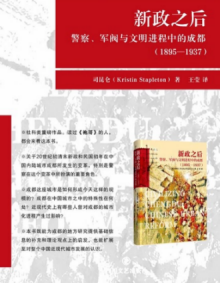
Tamara Plakins Thornton published an article in the April 2020 issue of the William and Mary Quarterly titled “Mathematical Geography, the ‘Use of theGlobes,’ and Race Theory in Early America." Her invited op-ed essay, “Kids can’t write cursive. The World won’t end,” appeared in the Los Angeles Times in March. In July, she received UB's Exceptional Scholar Award for Sustained Achievement. In the midst of the pandemic, papers she was scheduled to give at the annual 2020 conferences of the Society for Historians of the Early American Republic (SHEAR) and the History of Science Society have been postponed until 2021. She is spending Fall 2020 as a UB Humanities Institute Fellow and was awarded a Spring 2021 American Antiquarian Society-National Endowment for the Humanities Fellowship, both for her new book project, "Globes and the Global Imagination in Early America: A Study in People, Ideas, and Objects." Thornton was elected to the national Advisory Council of Phi Alpha Theta, the national history honors society, and continues her term on the SHEAR Advisory Board.
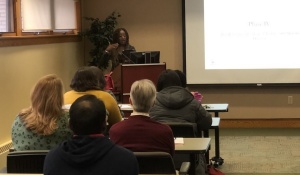
Nwando Achebe speaking about “The Politics of Knowledge Production –An Intellectual Sojourn into Understanding; Epistemology and Practice of African Gender History”
Victoria W. Wolcott had all her conferences and public talks canceled in 2020. However, with the help of a Humanities Institute Fellowship in Spring 2020, she completed her book manuscript, Living in the Future: Utopianism and the Long Civil Rights Movement, which is now forth comingwith the University of Chicago Press. She also has a forthcoming article, “Networks of Resistance: Floria Pinkney and Labor Interracialism in Interwar America,” in the Journal of African American History. A few weeks before shutdown she presented a talk, “Landscapes of Segregation: Race, Recreation and Resistance in Modern America,” for the Mellon Initiative in Urban Landscape Studies at Dumbarton Oaks in Washington, D.C. Wolcott also wrote an editorial for the New York Daily News and published an article on suffragists and hunger strikes for The Conversation.
Gene Zubovich received a John W. Kluge Fellowship at the Library of Congress for his second book project, "Culture Warriors Abroad: a Global History of the American Culture Wars." He also presented on his new project at the annual meeting of the American Society for Church History and was due to present his work at annual meetings of the Organization of American Historians and the Society for Historians of American Foreign Relations. This fall, his article, titled “U.S. Protestants, Globalization, and the International Origins of the Sixties,” will appear in Diplomatic History and his chapter, titled “William Ernest Hocking and the Liberal Protestant Origins ofHuman Rights,” will appear in Christian Human Rights Revisited (Cambridge). He also has a review essay on the concept of “Judeo-Christianity” appearing in Religion and Politics. He is thrilled to join the UB history department!
